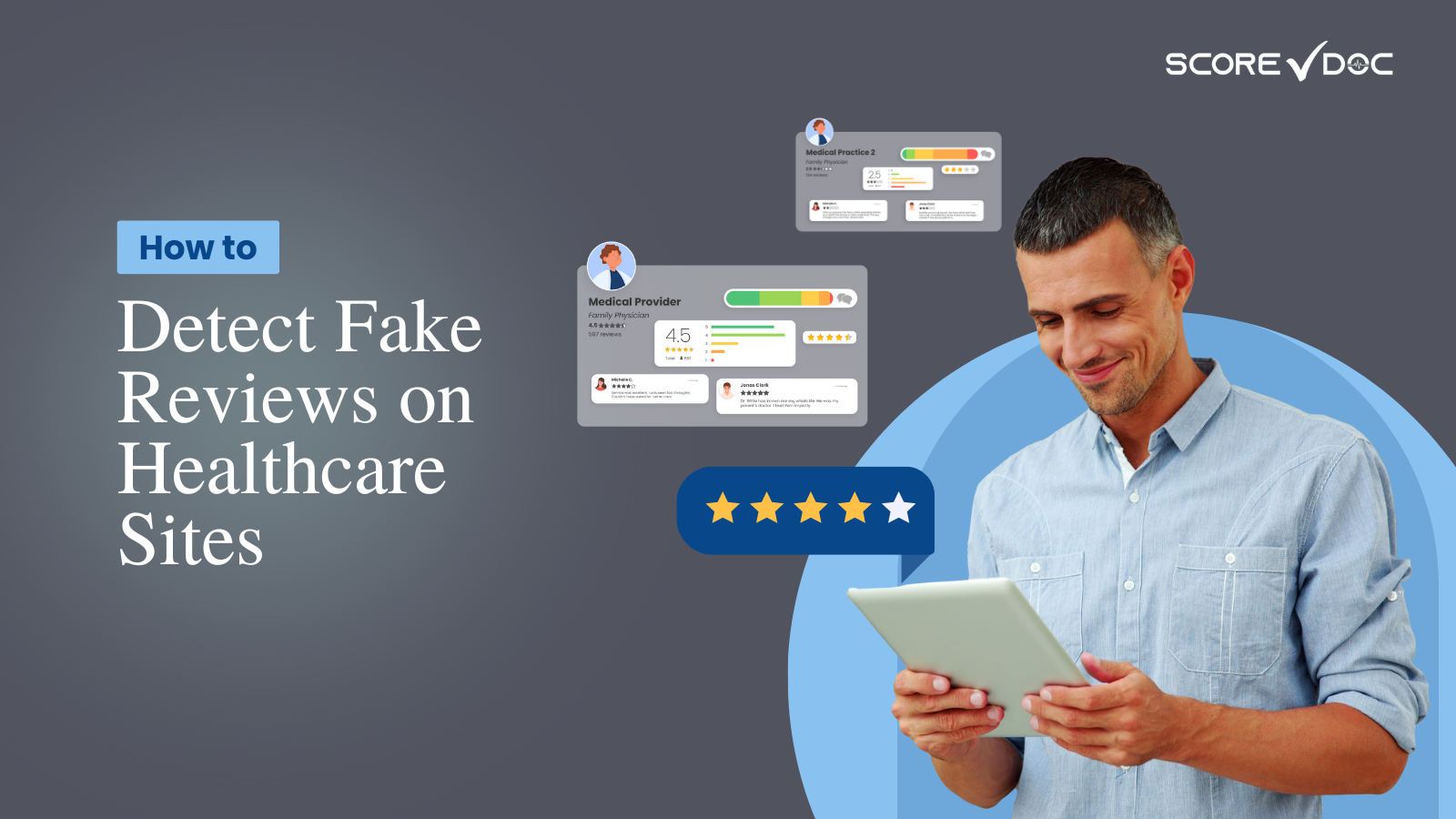8 Tips to Spot Fake Patient Reviews and Choose the Right Provider

Online reviews and ratings play a crucial role in a patient's care journey. About 72% of patients rely on reviews shared by other patients while choosing their healthcare providers. Even a single negative review can influence your decision regarding a potential provider. However, there's something worse than a negative review- a fake one!
8 Tips to Spot a Fake Patient Review
1. Dig deeper into the reviewer's profile
The reviewer's name and profile picture can be a clear giveaway of the review's authenticity. Fake review companies often use generic names and create profiles without pictures to protect their identity. Fake reviewers repeat phrases and brag about their ‘extremely good’ experience.
2. Inspect 1-star and 5-star reviews
Plenty of 1-star and 5-star reviews are glaring signals of foul play. If a healthcare provider has several 1-star reviews, read through to know where they failed to meet the patient's expectations. Again, something may be amiss if a provider has many 5-star reviews. Any provider should have a healthy mix of star ratings as not all patients are expected to be equally satisfied or dissatisfied with their services.
3. Look at the most recent reviews
Instead of settling for the top reviews, switch to the 'most recent' ones by selecting the same with the 'sort by' option. This way, you can see the latest reviews left by patients and not just the 5-star or top-rated ones. Also, note whether the positive reviews appear together on the same day or the same people are leaving reviews for different providers, indicating that they are fabricated.
4. Watch out for repeat brand mentions
If a reviewer repeatedly 'praises' a particular healthcare provider's services, chances are they have been paid to do so. Some may even compare doctors in their review, writing a negative review about one and giving reasons why one should see the other doctor instead.
5. Check for wrong spellings and grammar mistakes
The shady nature of the fake review business involves recruiting writers from low-income countries where English isn't popular. While mistakes may make the review seem more authentic, watch out for patterns that may indicate deliberate mistakes made to present the review as relatable and genuine.
6. Take doctor/provider's responses into account
Often the way a doctor/ provider responds to a review speaks more of their credibility than the review alone. For example, consider a single-star rating with a negative review that may not be very elaborate. Note how the doctor/provider responds to the same. If they reach out to the patient and promptly resolve their concerns, chances are they are legit and genuinely interested in their patient’s wellbeing.
7. Diversify your search
Never rely on review sites alone to know how good a doctor is. Do a thorough background check (the schools they have been to, their degrees, and qualifications) and, if possible, track down academic articles published by them to verify their expertise. Check out their social media posts to see if there is anything unethical about their practice.
7. Beware of terms like ‘gift’ or ‘free’
Words like ‘gift’ or ‘free’ should automatically set off warning bells, as these may indicate review solicitation. Online reviews are meant to be unbiased and independent expressions of a patient’s experience with their healthcare provider. Offering returns for reviews is like paying the patients for a favor done.
Effect of Fake Reviews on the Healthcare Industry
Fake patient reviews are rampant across top online doctor review websites, including Google, Yelp, and Facebook. There are platforms offering fake reviews for a fee, while private Facebook groups have emerged as major players in this review sham- generating fake reviews for as little as $5-$10. Healthcare providers, bent on profits, have even violated privacy norms to attain the coveted 5-star ratings.
Much more is lost than valuable time and money spent on an unsatisfactory experience. Often the only action taken against offenders is either a Consumer Alert that lasts for 90 days (for Yelp reviews) or automatic deletion of the review with no warning to other online users of the provider's past unethical conduct. Also, such miscommunication affects the reliability of the review sites, which are still in the nascent stages, considering not all patients factor online reviews in their healthcare decisions.
So, the only way to stay foolproof against potential fake reviews is to know when you see one.
Save Time and Find Only Genuine Healthcare Providers with ScoreDoc
Manually checking patient reviews on multiple doctor review sites can be a tedious task and may not guarantee that you find the best fit for your unique healthcare needs. At ScoreDoc, we ease the provider selection process for you with our consolidated review report.
Once you submit our form, we will gather online reviews related to your prospective provider from the most important review sites, assign a ScoreDoc to that provider and compare their score with 100s of other providers within their specialty.
Our platform uses AI to generate sentiment analysis reports that provide an overview of the emotions frequently expressed by patients towards your potential healthcare providers in their online reviews.


